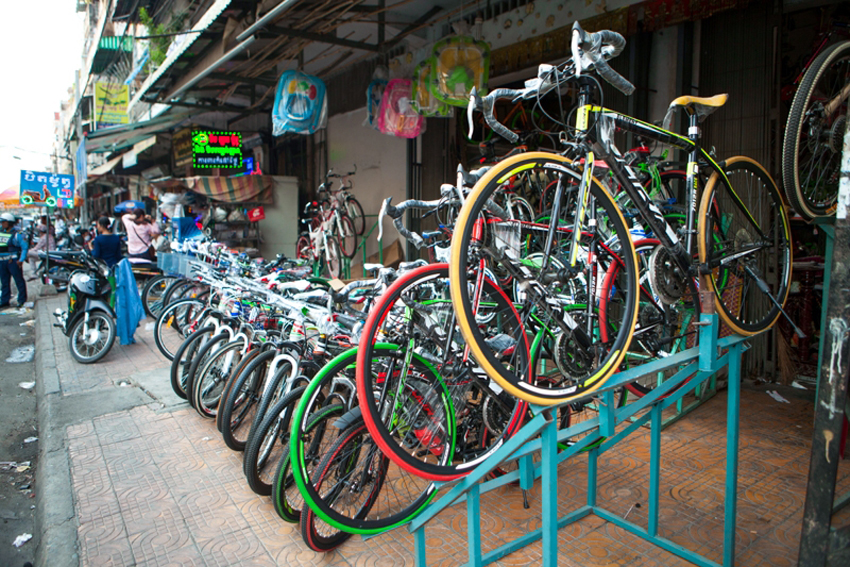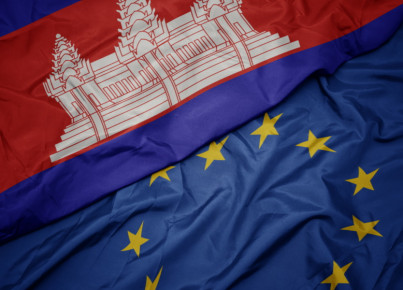Last year saw a growth in demand for bicycles in the EU. Exports from Cambodia account for a quarter of non-European imports. Between diversification needs and low labour costs, here are the reasons for a success story
The COVID-19 pandemic is causing changes in the habits of people all over the world. According to data released by the European Commission on international trade reveal an interesting aspect: a rapid increase in European demand for bicycles, estimated at around 35% per year in 2020. One of the environment-friendly consequences of the various national lockdowns, together with the photos of some of the world's most polluted skies turning blue again after decades, has encouraged the use of alternative transport. In some cases, the only exception to the restrictive measures imposed by governments was the possibility of doing some individual sport nearby: some people could not resist the idea of stretching their legs in the open air on a bicycle. On the other hand, reopenings have gradually allowed commuters to return to their jobs. Rather than travelling crammed into public transport without a safe distance, they soon replaced it with a bicycle… often made in Cambodia.
According to the EUROSTAT, the increase in European demand for bicycles has been mostly satisfied by productions located in the Indo-Pacific. The report shows that Cambodia accounted for a quarter of non-European imports of this product in 2020 (24%) - followed by China (17%), Taiwan (11%) and Bangladesh (8%). Exports of bicycles produced in Cambodia, in general, grew at an average rate of 20% from 2015 to 2020, according to the International Trade Centre database.
Although the data return a promising picture of the Cambodian emerging market, the health crisis has taken its toll. The national economy of the Asian kingdom grew rapidly until the outbreak of the pandemic, at an average rate of 7.7% since 1998. Restrictions from COVID-19 have cost it a setback, causing GDP to contract by 3.1% in 2020. Economic diversification has been a priority on the Cambodian government's political agenda for some time, as the national economy depends on exports to foreign countries. Over the years, investment reforms and industrial policies have been promoted, though most of them have proved insufficient. The government knows that diversification means promoting structural changes aimed at economic development and poverty reduction, essential objectives for the well-being of the local population. However, Phnom Penh is still heavily dependent on the clothing and footwear industry, as well as the tourism sector - which the pandemic has hit particularly hard.
The need to vary sources of economic supply and trading partners gets more urgent in times dominated by uncertainty. COVID-19 was emblematic: it caused, among other things, a shock in global value chains that some analysts have deemed irreversible. As Paul Krugman suggested, amid security issues and an international trade competition that takes on increasingly antagonistic connotations, the idea of a return to practices of economic nationalism no longer seems as absurd as when it was promoted by the Trump administration. Economic globalization has therefore been halted by an equally global phenomenon. The COVID-19 pandemic not only transcended national borders but has rapidly spread to the supply chains, which constitute the lifeblood of Southeast Asia's trade relations with the rest of the world.
However, the increase in Cambodian bicycle exports to the European Union seems to be the expression of an opposite trend. The assembly of the final product is often the result of several production steps, many of which are located in Vietnam. The bicycle factories are strategically located near the Vietnamese borders. The sector is then further supported by foreign relocated companies attracted by the low wages of local labour, which have relocated production to Cambodia. The national economy is still dependent on foreign trade, an extremely narrow basket of exports, and foreign investments. However, the reactivity of the country's bicycle supply bodes well for the recovery of the national economy, which continues to rely on some of the traditional factors of Southeast Asia's economic success: exports, low labour costs, production chains that continue to thrive.
Cambodia's interest in the European Union market is mutual, although the power relations are unbalanced. a href="https://www.khmertimeskh.com/50793025/bicycle-boom-sees-cambodia-overtake-rivals-in-exports-to-eu/" target="_self">The bicycle boom is great news for the Asian kingdom, partly because it is a sign of a détente for the sanctions imposed by the EU in August 2020. In 2001, the EU launched Everything But Arms (EBA), a free trade scheme tailored for trade with developing countries, but due to "systematic violations of human, political and labour rights", the Commission had opted for a partial withdrawal of the programme. Although the Kingdom still seems far from regaining free access to the EU market (as Prime Minister Hun Sen strongly rejects European accusations, claiming the freedom to exercise sovereign prerogatives) Cambodian bicycles are a successful case of diversification in the fast-growing economies of Southeast Asia.






